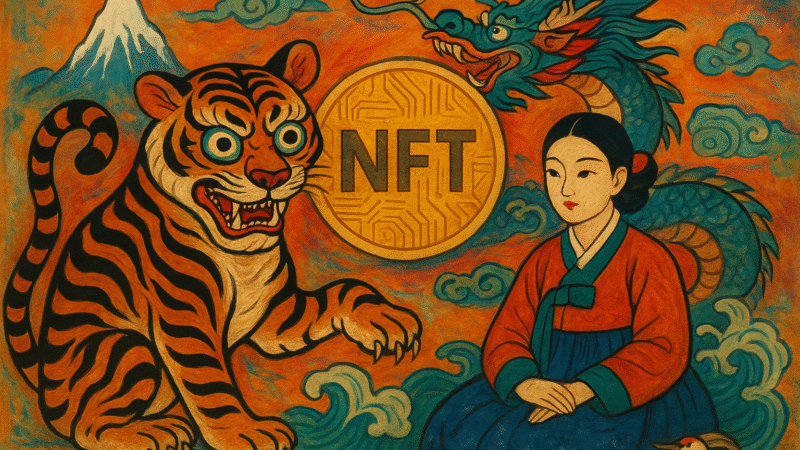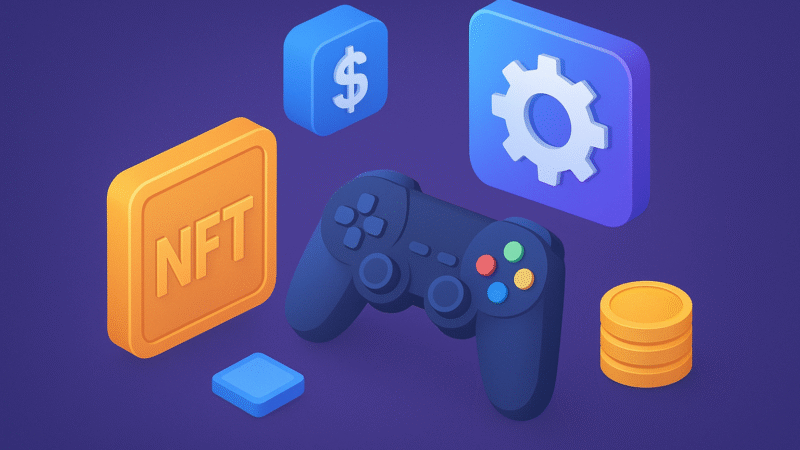Former OpenSea Executive Cleared In Landmark NFT Insider Trading Case
Introduction
In a landmark decision that is poised to reshape the future of digital asset regulation, a U.S. appellate court has overturned the insider trading conviction of former OpenSea executive Nate Chastain. Chastain, once the Head of Product at the largest NFT marketplace, had been found guilty in 2023 of using privileged information to profit from NFT trades on the OpenSea platform. His conviction had become the first major legal precedent involving insider trading and non-fungible tokens (NFTs), raising critical questions about whether NFTs should be regulated as securities or under a distinct framework. Now, two years later, this reversal signals a major pivot in how courts interpret blockchain-based assets.
Background: The Rise And Fall Of Nate Chastain
Nate Chastain was a rising star at OpenSea, which by 2021 had established itself as the dominant platform for trading NFTs. As Head of Product, Chastain had access to sensitive information, including which NFTs would be featured on OpenSea’s homepage. Allegedly, he used this non-public knowledge to purchase NFTs before they were promoted and later sold them at a profit, prompting accusations of self-dealing.
In 2022, OpenSea publicly acknowledged Chastain’s misconduct and asked him to resign. Shortly thereafter, federal prosecutors indicted him under wire fraud and money laundering statutes, arguing that his actions were akin to insider trading in traditional finance. In May 2023, Chastain was convicted on both counts and sentenced to three months in prison, along with a fine and forfeiture of his cryptocurrency earnings from the transactions.
The Legal Dilemma: Are NFTs Securities?
The core of Chastain’s appeal hinged on one unresolved issue: are NFTs legally equivalent to securities or commodities, and therefore subject to traditional insider trading laws? At the time of his initial conviction, no regulatory agency had definitively classified NFTs under the Securities and Exchange Commission (SEC) or Commodity Futures Trading Commission (CFTC). The lack of clear classification allowed the prosecution to rely on broadly interpreted definitions of fraud.
Chastain’s legal team argued that his case represented prosecutorial overreach and an unjust extension of insider trading laws to a medium that did not fall under their traditional purview. They emphasized that the government failed to demonstrate that NFTs represented securities, which would be necessary for insider trading laws to apply in the conventional sense.
Appeal Ruling: A Shift In Legal Thinking
In the appeal ruling delivered on August 1, 2025, the U.S. Second Circuit Court found in favor of Chastain. The court concluded that the government’s original argument stretched the boundaries of insider trading definitions and relied on untested legal assumptions about digital assets.
The ruling stated that the prosecution failed to establish the NFTs involved were securities or similar regulated instruments. The court also noted that applying traditional insider trading statutes to decentralized assets without legislative clarity creates legal uncertainty and undermines due process. As such, the original conviction was vacated, and Chastain was fully exonerated.
Legal analysts believe this decision introduces a necessary distinction between centralized securities markets and decentralized digital ecosystems. By recognizing NFTs as a unique class of assets, the court acknowledged the limitations of applying legacy financial regulation to emerging blockchain technologies without tailored legal frameworks.
Implications For The NFT Market
The decision to clear Chastain could send ripples across the NFT and crypto industry. For creators, traders, and platforms operating in the NFT space, the case serves as a reminder that the legal boundaries of digital asset transactions remain under development.
Many NFT marketplaces, including OpenSea, Blur, and Rarible, have since introduced stricter internal controls and transparency measures to prevent insider abuses. However, with no overarching regulatory framework, enforcement still largely depends on internal company policies or case-by-case legal actions.
The appeal ruling underscores the urgent need for Congress or regulatory bodies like the SEC to clarify the classification of NFTs. Whether they are considered collectibles, commodities, securities, or a new asset class altogether will determine the rules that govern trading, taxation, and corporate responsibility.
Regulatory Reactions And Industry Commentary
Following the court’s decision, several legal experts and industry leaders expressed support for the ruling. Sheila Warren, CEO of the Crypto Council for Innovation, called it a “significant victory for due process and for innovators working in Web3 and digital ownership.” She argued that regulation must be based on clear, predictable rules rather than retrofitted interpretations of outdated laws.
On the other hand, consumer protection advocates expressed concern that the ruling might embolden unethical behavior in the absence of strong oversight. Critics fear that without stricter rules, bad actors could exploit information asymmetry and erode investor confidence in NFTs and DeFi platforms.
The SEC has yet to comment officially on the ruling, but some sources indicate it may intensify its efforts to develop a legal framework for NFTs. Meanwhile, lawmakers in both the U.S. Senate and House have reintroduced bills seeking to define digital assets more precisely, suggesting that the Chastain ruling may serve as a catalyst for regulatory reform.
What This Means For Web3 And Decentralized Platforms?
The Chastain case reveals broader challenges facing Web3 organizations, where governance, ownership, and accountability remain evolving concepts. Decentralized platforms often operate without formal compliance teams or legal departments, making them vulnerable to regulatory scrutiny.
Legal scholars suggest that platforms must balance innovation with responsibility by implementing on-chain compliance tools, transparent governance protocols, and zero-knowledge proofs to detect suspicious behavior without compromising user privacy. As the legal framework develops, Web3 builders must take proactive steps to avoid the ambiguities that ensnared OpenSea and Chastain.
The appeal ruling may also encourage more companies to lobby for clearer laws and self-regulatory standards. In the long run, this could strengthen the legitimacy of the NFT sector and attract more institutional investment, provided that users and regulators reach a consensus on definitions and best practices.
The Precedent Effect: How Courts May Approach Future Cases?
Now that a federal appellate court has drawn a line between NFTs and traditional securities, future legal actions involving digital assets may be judged differently. Prosecutors may need to prove asset classification before pursuing fraud or insider trading charges. This could make it more difficult for law enforcement agencies to bring swift action against misconduct in the crypto space without corresponding changes in legislation.
That said, the Chastain decision does not absolve all insider activity in the NFT space. Instead, it sets a higher bar for legal intervention and demands more precise reasoning. It also encourages regulators to engage with technology experts, crypto-native businesses, and legislators to ensure coherent enforcement that doesn’t stifle innovation.
The Road Ahead For Nate Chastain
While the legal battle may have ended, Nate Chastain’s journey in the crypto space is far from over. The public fallout from his initial conviction tarnished his professional reputation and sidelined him from the industry for two years. Now cleared, it remains to be seen whether he will re-enter the NFT or blockchain world.
Some in the community believe he may return with valuable insights into compliance and platform governance, while others feel that his association with the scandal will make reintegration difficult. Regardless of his personal trajectory, the case has firmly embedded his name in the history of NFT regulation and legal precedent.
Conclusion
The exoneration of Nate Chastain in the first-ever NFT insider trading appeal has significant implications for the digital asset space. The decision redefines how courts interpret NFT-related activities under existing laws and emphasizes the importance of crafting new, digital-native legal frameworks. It also sends a powerful message to regulators, platforms, and entrepreneurs: innovation and regulation must evolve in tandem.
As NFTs continue to mature as an asset class and integrate with mainstream finance, establishing clear rules will be vital to ensuring market integrity, protecting consumers, and fostering innovation. The Chastain ruling will likely serve as a benchmark for future litigation and regulation, paving the way for a more transparent and accountable Web3 ecosystem.



